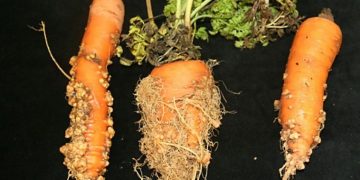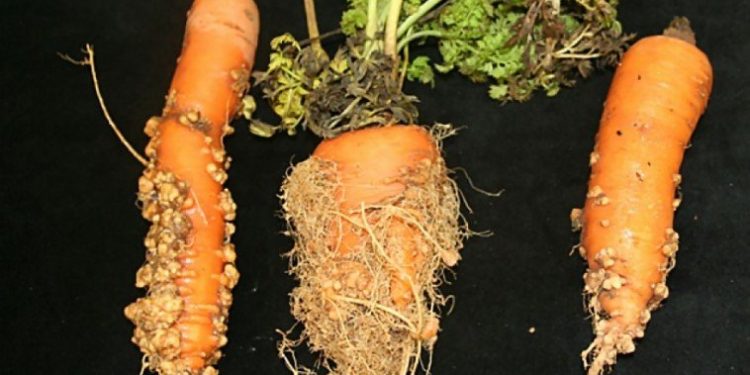AgriPests #CropHealth #SustainableAgriculture #RootKnotNematodeManagement #IntegratedPestManagement
Root knot nematodes are microscopic worms that can cause significant damage to crops, leading to yield loss and decreased quality. These nematodes are found in soil all around the world and can infect over 2,000 plant species. The damage they cause to plants occurs when they penetrate and feed on the roots, causing the formation of galls or knots, which disrupts water and nutrient uptake, leading to stunted growth and reduced yield.
The development of root knot nematodes in agriculture can have severe consequences. They not only impact crop yield, but also increase the cost of production due to the need for additional inputs such as pesticides, fertilizers, and water. The use of chemical control agents, however, can lead to negative environmental impacts and create health risks for workers and consumers.
To prevent and manage root knot nematode infestations, farmers can take various measures such as crop rotation, soil fumigation, use of resistant crop varieties, and biological control methods. Researchers are also exploring novel approaches, such as the use of RNA interference and other biotechnology techniques to control these pests.
It is essential to increase awareness of the threat posed by root knot nematodes and encourage farmers to adopt sustainable and integrated pest management practices to prevent their spread. By doing so, we can mitigate the impact of these invisible culprits and ensure a sustainable future for agriculture.































